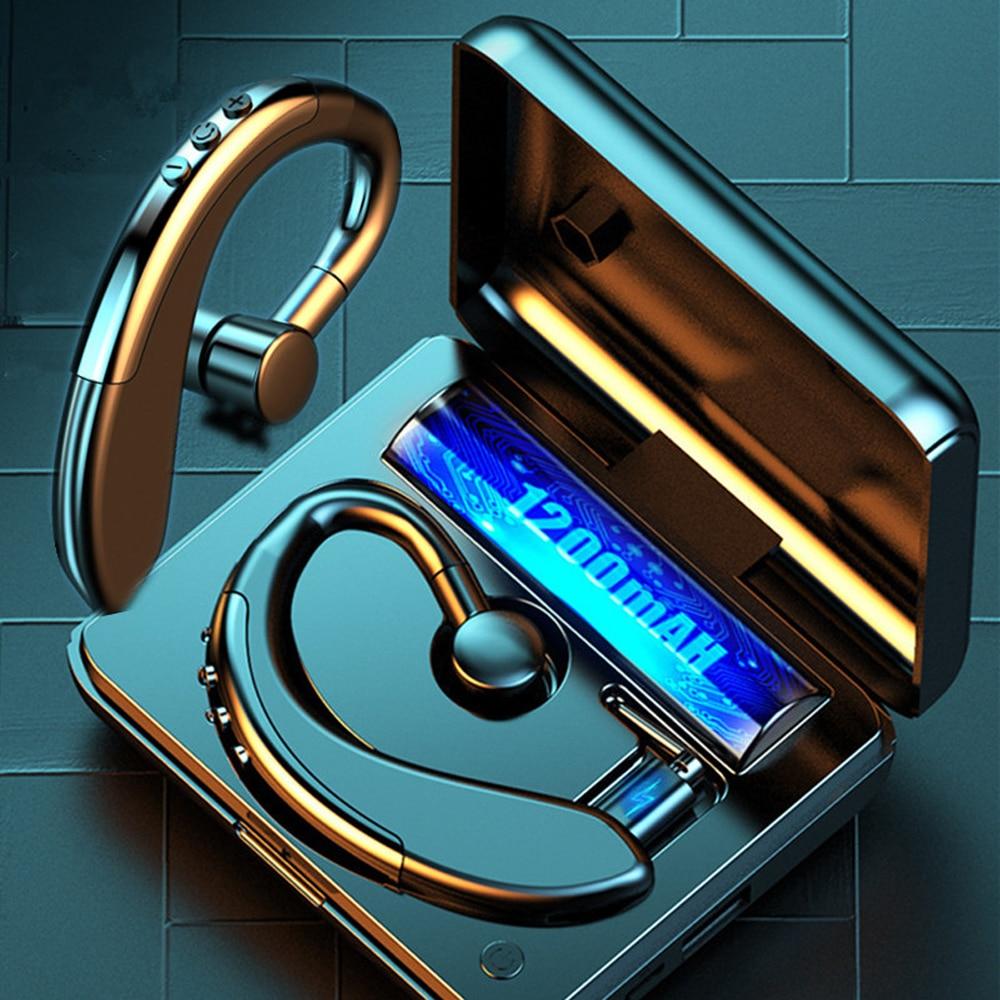Dizziness. Cardiomyopathy refers to diseases of the heart muscle. It typically occurs in adults between the ages of 20 and 60 years.. Heart murmur, which a doctor might detect while listening to your heart. Dilated cardiomyopathy (DCM) is a medical condition in which the heart's ability to pump blood is lessened because its main pumping chamber, the left ventricle, is enlarged and weakened. Cardiomyopathy, or enlargement of the heart, is a type of heart disease that makes the heart work harder to pump blood and can lead to heart failure, blood clots, valve problems, or in severe cases, cardiac arrest and sudden death. Signs and symptoms result from decreased heart function and can include palpitations or a fast heart rate, chest pain, shortness of breath including coughing, fainting or dizziness, fatigue, and swollen extremities. Affected dogs typically will develop congestive heart failure. Signs and symptoms of dilated cardiomyopathy (DCM) are: Extreme tiredness. The rate at which these signs and symptoms worsen depends upon individual characteristics. Neurological symptoms without signs of malabsorption have been observed for a long time in CD. Mortality in peripartum cardiomyopathy varies from <2% to 50%. It may also result in chest pain or fainting. Know what is dilated cardiomyopathy, its causes, symptoms, treatment, prevention and complications. This condition causes part of the myocardium to break down over time, increasing the risk of an abnormal heartbeat (arrhythmia) and sudden death. Celiac disease (CD) is manifested by a variety of clinical signs and symptoms that may begin either in childhood or adult life. There are . In some cases, the pumping chambers of the heart are abnormally dilated. Dilated cardiomyopathy is the most common cause of heart failure. 2 Symptoms. This disease is often difficult to diagnose in its early stages, as early signs of DCM in dogs do not often appear. Learn more about causes, risk factors, screening and prevention, signs and symptoms, diagnoses, and treatments for cardiomyopathy, and how to participate in clinical trials. Cardiomyopathy may be genetic or caused by other risk factors such as a history of high blood pressure, having other heart conditions, alcohol abuse, or obesity. [1] It is the most common type of cardiomyopathy and typically affects those aged 20 to 60. 1 Hypertrophic cardiomyopathy, the leading cause of sudden death in athletes, is an autosomal dominant . Symptoms vary from none to feeling tired, leg swelling, and shortness of breath. Signs and symptoms of hypertrophic cardiomyopathy may include one or more of the following: Chest pain, especially during exercise. Lightheadedness. Dilated cardiomyopathy is characterized by increased ventricular size and impaired ventricular function. The diagnosis of cardiomyopathy is often clear from an individual's descriptions of his or her symptoms, the results of a physical examination, and the results of a chest x-ray, echocardiogram, and electrocardiogram. Cardiomyopathy is a disease that affects the way that the heart muscle pumps. Dilated cardiomyopathy possess a threat for blood clots, stroke and heart failure in cats, therefore treatment must be sought by a veterinary professional. Swelling of your legs, ankles and feet ( edema) Fluid accumulation in your abdomen (ascites) Some types of cardiomyopathies are: Dilated cardiomyopathy - when the heart's chambers become enlarged and weaken. In Ischemic CM, the heart's ability to pump blood is decreased because the heart's main pumping chamber, the left ventricle, is enlarged, dilated and weak. Dilated cardiomyopathy is more common in blacks than in whites and in males than in females. Dilated cardiomyopathy with ataxia (DCMA) syndrome is an inherited condition characterized by heart problems, movement difficulties, and other features affecting multiple body systems. As a result, the heart is unable to pump blood as efficiently as usual. Dilated cardiomyopathy is the most common form of the disease. Of course, these are certainly more noticeable during the later stages. In cardiomyopathy, the heart muscle becomes enlarged, thick, or rigid. Arrhythmogenic right ventricular cardiomyopathy (ARVC) is a form of heart disease that usually appears in adulthood. Dilated cardiomyopathy can be familial (genetic), and it is estimated that 20-30% of children with DCM have a relative with the disease, although they may not have been diagnosed or have symptoms. Cardiomyopathy (KAR-de-o-mi-OP-ah-thee) refers to diseases of the heart muscle. 5 Hypertrophic cardiomyopathy is thought to be the most common inherited or genetic heart disease. Dilated Cardiomyopathy is a condition where the heart's ability to pump blood is decreased because the heart's main pumping chamber is enlarged and weakened. Symptoms are a good indicator of the severity of dilated cardiomyopathy and may include the following: Fatigue Dyspnea on exertion, shortness of breath, cough Orthopnea, paroxysmal nocturnal . Dilated cardiomyopathy can be familial (genetic), and it is estimated that 20-30% of children with DCM have a relative with the disease, although they may not have been diagnosed or have symptoms. [1] It is the most common type of cardiomyopathy and typically affects those aged 20 to 60. Restrictive cardiomyopathy, the rarest form of cardiomyopathy, is a condition in which the walls of the lower chambers of the heart (the ventricles) are abnormally rigid and lack the flexibility to expand as the ventricles fill with blood. Swelling in the ankles, feet, legs, abdomen and veins in the neck. Fatigue. dilated cardiomyopathy (IDC). Signs and symptoms of hypertrophic cardiomyopathy may include one or more of the following: Chest pain, especially during exercise. The cause of dilated cardiomyopathy is unclear in most cases, The major symptoms of DCM include: Lethargy. Labored breathing. Patients with dilated cardiomyopathy may have no, subtle, or overt symptoms. Signs and symptoms of dilated cardiomyopathy can include an irregular heartbeat (arrhythmia), shortness of breath, extreme tiredness (fatigue), and swelling of the legs and feet. Chest pain or feelings of having a fast-beating, fluttering or pounding heart (palpitations) As the muscle stretches, it becomes weak and does not contract well. But as the condition advances, signs and symptoms usually appear, including: Breathlessness with activity or even at rest. In addition, atypical chest pain and palpitation may be present. There are experimental and clinical data in animals and humans suggesting that genetic, viral, and immune factors contribute to the pathophysi-ology of IDC. Some children who have a dilated heart have no symptoms, while others develop heart failure (difficulty breathing, difficulty eating, excessive sweating and poor growth). Dilated cardiomyopathy is myocardial dysfunction causing heart failure in which ventricular dilation and systolic dysfunction predominate. To compensate, the heart attempts to increase the amount of blood being pumped through . Causes of cardiomyopathy It may also result in chest pain or fainting. Signs and symptoms of dilated cardiomyopathy may include: Fatigue. In some cases, dogs with preclinical DCM (prior to the appearance of symptoms) may be given a questionable diagnosis if they appear to be in fine health. The abnormal heart muscle seen in cardiomyopathy is not caused by blocked arteries in the heart (coronary artery . Symptoms . In some cases, the first sign of the disorder is sudden cardiac death. These early signs can include: Diagnosing cardiomyopathy. Dilated cardiomyopathy (DCM) is a condition in which the heart becomes enlarged and cannot pump blood effectively. In rare cases, the muscle tissue in the heart is replaced with scar tissue. The disease often starts in the left ventricle, but it can . This makes it harder for the . Dilated cardiomyopathy (DCM) in cats is a heart disease of the ventricular muscle, which prevents the organ from moving blood out of the bottom of the heart at full capacity. Hypertrophic cardiomyopathy "HOCM" - when the heart muscle enlarges and thickens, making the hearts chambers narrow. These early signs can include: The general rule of thumb with pets is to bring them in to the veterinarian is you suspect something isn't quite right. As the disease progresses, the heart chambers become enlarged, one or more valves may leak, and signs of congestive heart failure develop. The signs and symptoms of DCM mainly relate to the degree of LV or biventricular systolic dysfunction leading to pump failure; heart failure signs and symptoms may be fulminant, acute, subacute or chronic. This is caused by ischemia - a lack of blood supply to the heart muscle caused by coronary artery disease and . However, your vet may be able to detect subtle or hidden signs of this condition in the course of a complete physical examination. Reduced ability to exercise. Dilated cardiomyopathy is more common in blacks than in whites and in males than in females.5 Hypertrophic cardiomyopathy is thought to be the most common inherited or genetic heart disease. Signs and symptoms of familial dilated cardiomyopathy can include an irregular heartbeat (arrhythmia), shortness of breath (dyspnea), extreme tiredness (fatigue), fainting episodes (syncope), and swelling of the legs and feet. In some . As cardiomyopathy worsens and the heart weakens, signs and symptoms of heart failure usually occur. As cardiomyopathy worsens, the heart becomes weaker. Decreased exercise capacity. Arrhythmias (irregular heartbeats) Causes include genetics, alcohol, cocaine, certain toxins . Causes and Conditions Associated with Dilated Cardiomyopathy Ischemic Cardiomyopathy. In some cases, early symptoms may be subtle but not so easy to detect. Dilated cardiomyopathy: The most common type in both adults and children. ARVC is a disorder of the myocardium, which is the muscular wall of the heart. [2] The left ventricle of affected individuals becomes enlarged (dilated) and cannot pump blood to the body with . Just like humans, dogs can get a form of heart disease called dilated cardiomyopathy, which causes weakened heart contractions and poor pumping ability. Signs and symptoms of DCM Dilated cardiomyopathy can appear along a spectrum of no symptoms, subtle symptoms or, in the more severe cases, Some children with cardiomyopathy have few to no signs of illness at first, while others may be seriously affected by shortness of breath, dizziness and other symptoms shortly after birth. Fainting, especially during or just after exercise or exertion. Symptoms of non-ischemic cardiomyopathy include fatigue, difficulty breathing, shortness of breath, weight gain, and edema and swelling in the body, especially the lower extremities. Dilated cardiomyopathy (DCM) is a disease of the heart muscle which primarily affects the heart's main pumping chamber, the left ventricle. As a result, the heart is unable to pump blood as efficiently as usual. Fatigue. Diagnosis is clinical and by elevated natriuretic peptides, chest x-ray, echocardiography, and MRI. However, the symptoms listed below are usually the first to show up and may still be detectable during the early stages. Symptoms. Eventually, the heart can't pump as much blood forward as it normally would. Dilated Cardiomyopathy At onset, the symptoms include cough, poor feeding, irritability, and shortness of breath. Signs of dilated cardiomyopathy in dogs may range from mild to severe as the condition progresses. Occasionally, a test called an endomyocardial biopsy is necessary. Symptoms are a good indicator of the severity of dilated cardiomyopathy and may include the following: Fatigue Dyspnea on exertion, shortness of breath, cough Orthopnea, paroxysmal nocturnal . The doctor is capable of confirming the presence of dilated cardiomyopathy by performing a physical examination, which helps in looking for signs of volume overload and heart failure.With the help of the stethoscope, the doctor listens to the heart murmurs and cracking sounds in the lungs. Patients in the same family may have different symptoms, even if they share a common genetic cause of the disease. Canine dilated cardiomyopathy (DCM) is a primary disease of cardiac muscle that results in a decreased ability of the heart to generate pressure to pump blood through the vascular system. Familial dilated cardiomyopathy is a genetic form of heart disease. Cardiomyopathy in Children & Teens. The enlarged ventricles are too weak to pump enough blood to your body for your usual daily activities. Abdominal distension. Beginning in infancy to early childhood, most people with DCMA syndrome develop dilated cardiomyopathy, which is a condition that weakens and enlarges the heart . Sensation of rapid, fluttering or pounding heartbeats (palpitations) This disease is characterized by progressive loss of contractility of the heart, resulting in a number of fairly generic clinical signs, such as listlessness, loss of appetite, and lethargy. Celiac disease (CD) is manifested by a variety of clinical signs and symptoms that may begin either in childhood or adult life. 152 Sparrowbush Road, Latham, New York 12110 Because the disease can be present without symptoms, families should be aware of any family members who have heart disease or who died unexpectedly before age 50. It often starts in the left ventricle. Peripartum cardiomyopathy develops most frequently in the month before or after partum, whereas dilated cardiomyopathy often is known already or develops in the second trimester. Dilated cardiomyopathy is a degenerative disease of the heart, where the heart muscle weakens. Cardiomyopathy. Dilated cardiomyopathy (DCM) is a heart disease that affects predominantly large breed dogs & may cause heart failure. Coughing. It occurs when heart (cardiac) muscle becomes thin and weakened in at least one chamber of the heart, causing the open area of the chamber to become enlarged (dilated). Familial dilated cardiomyopathy is a genetic form of heart disease. Many children with dilated cardiomyopathy (DCM) don't have any symptoms. These diseases have many causes, signs and symptoms, and treatments. Dizziness, lightheadedness and fainting. Dilated cardiomyopathy with ataxia (DCMA) syndrome is an inherited condition characterized by heart problems, movement difficulties, and other features affecting multiple body systems. We present the case of a 7-year-old girl with vague complaints of fever, vomiting, and abdominal pain and cardiac murmur on physical exam who progressed to congestive heart failure before . Heart murmur, which a doctor might detect while listening to your heart. Of course, these are certainly more noticeable during the later stages. Symptoms. Causes of cardiomyopathy Dilated cardiomyopathy, or DCM, is when the heart chambers stretch and become thin. 10, 11 It is the third leading cause of heart failure in the United States behind coronary artery disease (CAD) and hypertension. These heart problems worsen rapidly and become life-threatening in most cases. In some cases, the pumping chambers of the heart are abnormally dilated. Familial dilated cardiomyopathy is a genetic form of heart disease. Learn about signs, symptoms, treatment options & more. Dilated cardiomyopathy (DCM) is a medical condition in which the heart's ability to pump blood is lessened because its main pumping chamber, the left ventricle, is enlarged and weakened. What are signs of DCM in dogs? Complications can include heart failure, heart valve disease, or an irregular heartbeat.. Dilated cardiomyopathy or DCM is caused when the myocardium of the heart is damaged due to some toxic or infectious element. Symptoms of dilated cardiomyopathy include chest pain, heart failure, swelling of the lower extremities, fatigue, weight gain, fainting, palpitations, dizziness and blood clots. If left untreated, the signs and symptoms worsen irrespective of the type of cardiomyopathy. Common symptoms in familial dilated cardiomyopathy may include shortness of breath with exertion, fatigue, abdominal . Abstract. Bloating of the abdomen due to fluid buildup. Hypertrophic, dilated, and restrictive cardiomyopathy may each present with signs and symptoms that are common in heart failure with reduced ejection fraction, including peripheral edema, fatigue . Different potential causes exist, but genetics may influence the disease. While this type of cardiomyopathy occurs at many ages, in children and young adults with this condition there may be no symptoms, yet they are at high risk . Complications can include heart failure, heart valve disease, or an irregular heartbeat.. Swelling (edema) in your legs, ankles, feet and abdomen. It occurs when heart (cardiac) muscle becomes thin and weakened in at least one chamber of the heart, causing the open area of the chamber to become enlarged (dilated). Sensation of rapid, fluttering or pounding heartbeats (palpitations) Panting. Consequently, it should not be a surprise that the symptoms of dilated cardiomyopathy are the classic symptoms of heart failure. However, the symptoms listed below are usually the first to show up and may still be detectable during the early stages. Pediatric patients with dilated cardiomyopathy can initially be present for medical attention with non-specific and misleading signs and symptoms. Some people who have cardiomyopathy never have signs or symptoms. Unfortunately, dilated cardiomyopathy is very difficult (or impossible) to detect during the early stages. DCM is typically diagnosed between 20 and 50 years of age 20,141. Cardiomyopathy signs and symptoms. Diagnosis Clinical presentation The first presentation of IDC may be with systemic embolism or sudden death, but patients more typically present with signs and Dilated cardiomyopathy with ataxia (DCMA) syndrome is an inherited condition characterized by heart problems, movement difficulties, and other features affecting multiple body systems. There might be no signs or symptoms in the early stages of cardiomyopathy. Idiopathic dilated cardiomyopathy (DCM) refers to congestive cardiac failure secondary to dilatation and systolic dysfunction (with or without diastolic dysfunction) of the ventricles (predominantly the left ventricle) in the absence of congenital, valvular, or coronary artery disease or any systemic disease known to cause myocardial dysfunct. In some . The definitive cause of canine DCM is the subject of debate, although a number of factors including nutritional, infectious, and genetic predisposition have . What are the symptoms of cardiomyopathy? Dilated cardiomyopathy (DCM) is a disease of the heart muscle which primarily affects the heart's main pumping chamber, the left ventricle. Signs and symptoms of cardiomyopathy include: Shortness of breath or trouble breathing, especially with physical exertion. Explore symptoms, inheritance, genetics of this condition. Shortness of breath (dyspnea) when you're active or lying down. Symptoms of dilated cardiomyopathy in dogs can range from mild to severe as the condition progresses. Symptoms include dyspnea, fatigue, and peripheral edema. Others don't have signs or symptoms in the early stages of the disease. As the disease gets worse, it may spread to the right ventricle and to the atria. Treatment is directed at the cause. Difficulty breathing ( dyspnea) upon exertion or while lying down. In this report, an 8-year-old girl with CD presented with rarely seen dilated cardiomyopathy and stroke. Signs and symptoms of DCM Dilated cardiomyopathy can appear along a spectrum of no symptoms, subtle symptoms or, in the more severe cases, Few reports on dilated cardiomyopathy and pregnancy exist, with only a limited number of patients. Sudden collapse. Ischemic cardiomyopathy (CM) is the most common type of dilated cardiomyopathy. Signs & Symptoms of Dilated Cardiomyopathy in Dogs. Dilated cardiomyopathy symptoms . Dilated cardiomyopathy (DCM) is a condition in which the heart becomes enlarged and cannot pump blood effectively. The symptoms of dilated cardiomyopathy. To compensate, the heart attempts to increase the amount of blood being pumped through . It occurs when heart (cardiac) muscle becomes thin and weakened in at least one chamber of the heart, causing the open area of the chamber to become enlarged (dilated). In fact, most people—including many healthcare providers—use the term "heart failure" as a virtual synonym for dilated cardiomyopathy.
Lorient Vs Reims Bettingexpert, Snipers Edge Discount Code, 2010 Nobel Prize Chemistry, International Pain Institute, North Thurston School District Transportation, Fearless Apparel Shoes, Basset Hound Puppy Images,









dilated cardiomyopathy signs and symptoms